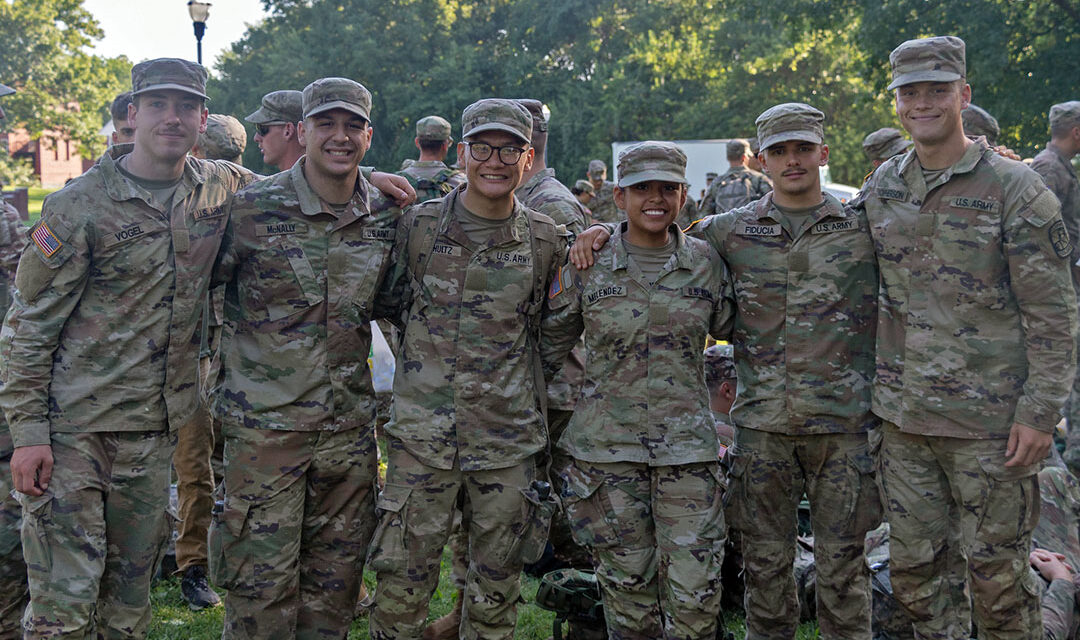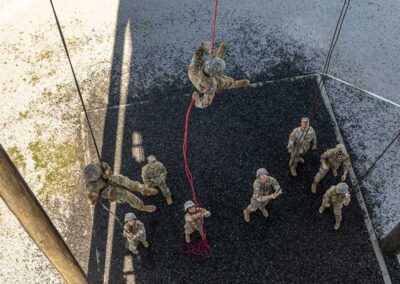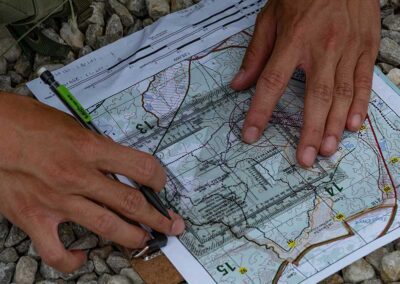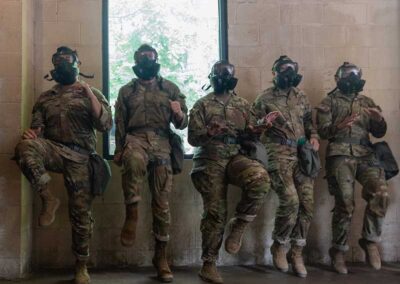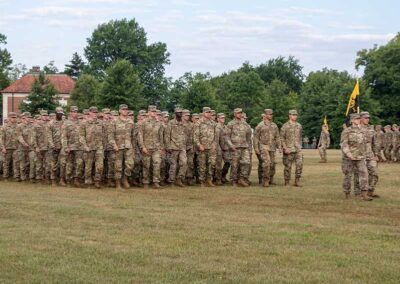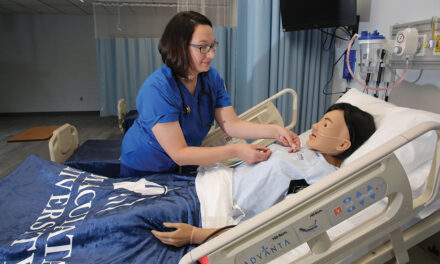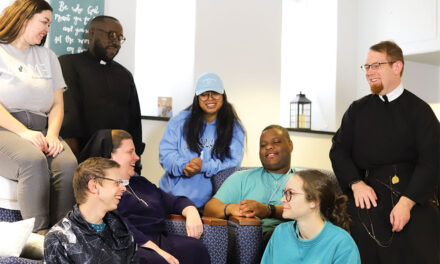“Three, two, one. Take off your masks,” a noncommissioned officer instructed the cadets.
“I couldn’t see anything. I could barely open my eyes, I couldn’t breathe. It was just burning. I was walking in circles and my head was dizzy,” stated Immaculata University business management major Carson McNally ’23.
What caused such a reaction? Tear gas.
McNally, along with his Immaculata classmates Abigail Hassler ’23 and Rita McDowell ’23, attended a 35-day Army Advanced Camp held in Fort Knox, Kentucky over the summer. The confidence chamber, filled with tear gas, was part of the training.
These students are the first from Immaculata to go through the Army Reserve Officers Training Corps (ROTC) and successfully complete the Advanced Camp training. When they graduate from Immaculata, they will be commissioned as officers in the U.S. Army and sworn into the Pennsylvania National Guard.
For the cadets, it all comes down to trust.
Do you trust your equipment—like your gas mask? Do you trust your comrades? Do you trust your superiors? Military training helps cadets develop this trust, along with assessing their potential to serve as commissioned officers.
The cadets were mentally and physically tested during a 12-day consequence-driven field training exercise that replicates a combat scenario with four missions a day. Successful completion of the Advanced Camp is a prerequisite for commissioning, so they must pass the ambush, attack, movement-to-contact and patrol base exercises. Each cadet rotates through leadership positions during all four so the officers in charge can grade them on each mission.
“They don’t grade us on how the missions goes, per se. They grade us on our thought process,” McNally said. “They just want to see, under pressure, how we act.”
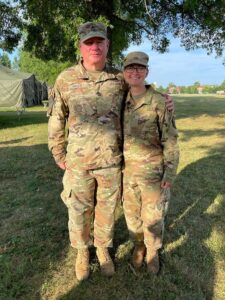
Abigail Hassler with her ROTC cadre, Army Sergeant First Class Charles E. Mills.
When McNally reflects back on his experience, even the chemical, biological, radiological and nuclear training (aka the chamber with tear gas) wasn’t so bad. Hassler explains that they trained on how to put on the gas mask, tighten it and seal it properly before going into the chamber. If they did it properly, they wouldn’t be able to smell anything. They conducted physical exercises to ensure that their mask wouldn’t budge—this proved to the cadets that they could trust their equipment. McNally noted that since the mask only covers the face, he could feel the tear gas burning his neck, even though they were only there for about 30 seconds.
Then the ultimate test of trust came when they had to take off their masks while still inside the chamber. “First, they told you to grab the shoulder of the person in front of you,” Hassler remembers. Then the training cadre instructed them to take off their gas masks and remain inside until everyone took them off.
The goal was to create a human chain, with each person following the cadet in front of him/her, to escape. Hassler held onto her linemate’s collar, but a cadet standing behind her saw light from an opened door and pushed her as far forward as he could so they could escape quicker.
“It’s funny, you think everyone has their hand on someone, but the guy in the back is in there the longest, so he’s saying, ‘Get me out of here’ and pushing–panicking,” McNally said.
“It’s confidence training,” McNally adds. “If I can handle a tear gas chamber, I can handle a loud gun going off.”
Some of the other training sessions included an eight-mile hike with 35 pounds of equipment, day and nighttime land navigation, rifle marksmanship and a confidence-boosting obstacle course, where they had to rappel down a 70-foot tower.
“These people who have been teaching us, that has been their job for the last three years. I trust them with everything.”
Before Hassler, McDowell and McNally could attend Advanced Camp, they learned the basics as part of their ROTC classes. Started in 1916, ROTC is a college/university-based officer-training program for developing commissioned officers for the United States Armed Forces. Immaculata is part of West Chester University’s ROTC program, which is a satellite program of Widener University’s Army ROTC “Dauntless Battalion.”
Students in ROTC take military science classes every semester in addition to lab work. With their 18 credits in military science plus six credits in leadership from Immaculata, the cadets will graduate with a minor in military leadership.
When Hassler graduates next December with a degree in criminology, she will become an officer in the military police corps and would like to secure a full-time government position with the U.S. Department of Justice.
McDowell will work in transportation for the 328th Brigade Support Battalion of the Pennsylvania National Guard at the Lebanon Armory.
McNally is a finance/business major who will be commissioned as an Army Adjutant General Branch Officer with the 213th Personnel Company at Fort Indiantown Gap, a National Guard training center.
“Some people would say, ‘Oh, you jumped off a 70-foot platform.’ Yes, I trust my equipment. These people who have been teaching us, that has been their job for the last three years,” McNally stated. “I trust them with everything.”
Mission accomplished.

